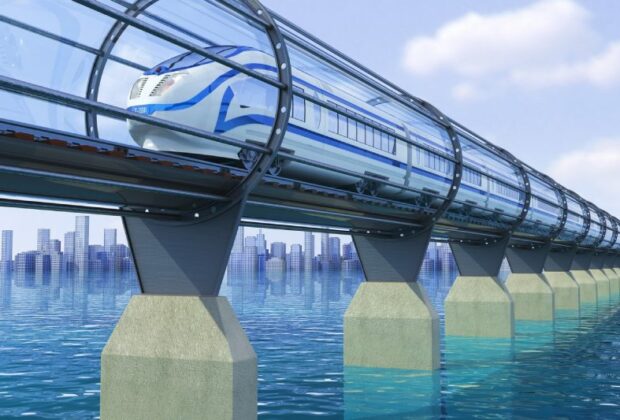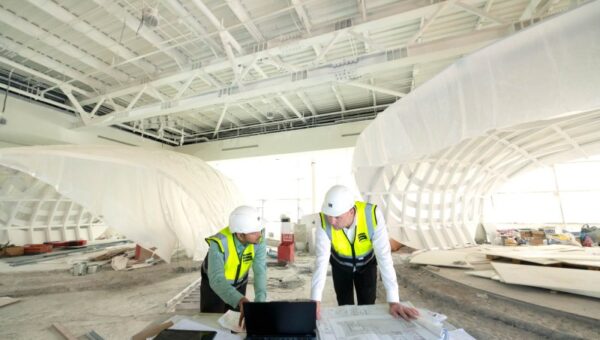India’s experimentation with a high-speed transportation system known as the hyperloop could soon come to pass as TuTr Hyperloop, a deep tech startup based at IIT Madras, is developing a full-scale hyperloop infrastructure capable of reaching speeds of up to 600 kmph. Chennai is the perfect location for its benefits, and the city has the opportunity to host the first Hyperloop test facility worldwide thanks to the strong technological support of the local population.
At IIT Madras’ Discovery campus in Thaiyur, the 410-meter hyperloop test track will host the technology’s first 100 kmph speed test. Once this threshold is reached, a longer track with a 600 kmph test will follow. If all goes according to plan, the technology might potentially enhance the Metro Rail system.
“TuTr engineers have successfully developed the linear induction motor prototype which is currently undergoing rigorous trials on the test track. The team is currently in the final stages of developing the levitation technology for this pod and will start testing on the tracks by the end of this month. We are working towards testing the pod propulsion and levitation technologies together in the 410 metre tube in the coming weeks,” Dr. Aravind S. Bharadwaj, the founder and director of TuTr Hyperloop, who left The Mahindra Group to assist with the commercialization of hyperloop technology, stated.
The primary goal of TuTr Hyperloop is to commercialize the technology for usage in India, not to reach 600 mph. “We have already identified real-world applications of this technology. One such potential application is to augment the existing Metro Rail network with a high-speed corridor developed with appropriate components of hyperloop technology.However, a key challenge is to develop it at a competitive cost. If we are able to cover 60km in 15 minutes, we will have a technology solution that will address a societal need. The pod can be like a bus taking 30 to 40 passengers at a stretch in a dedicated high-speed corridor,” he explained, stating that other uses for the hyperloop include transporting cargo from Chennai Port, which would ease traffic, and mining without interfering with environmentally sensitive areas.
On the IIT campus itself, the technocrat added, the pods may serve as a sustainable form of transportation. It can act as a test bed for the advancement of levitation technology and doesn’t have to move quickly.
In addition, he stated that the tube’s vacuum-sealed construction makes it possible to test hyperloop pods in environments with almost no air resistance, which is essential for reaching the high speeds involved in hyperloop transit. “The pod design has been inspired by the Falcon in the Indian context ‘Garuda’ and we are planning to extend it to 450 metres making it one of the longest hyperloop testing facilities,” Bharadwaj added.
TuTr has already established partnerships with other top European technology start-ups, including Swisspod and Hardt Hyperloop, to form part of the worldwide hyperloop community. With the Union Government serving as the main sponsor, the program has the backing of numerous academic institutions and business partners, including Indian Railways, which has granted a grant of Rs 8 crore.
Up to present, it has been granted approximately 15 crore. Prominent corporations such as L&T, Arcelor Mittal, Hindalco, Dassault, Ansys, and TI have also expressed their support for the initiative by contributing resources, funds, and experience.
According to Bharadwaj, India’s technology lagged behind Europe’s when the project was initiated, with Europe leading the race to create hyperloop technology by at least three to five years. He stated, “Now we are almost catching up with them,” IIT Madras intends to hold the Global Hyperloop Competition in February of next year in order to foster young people’s interest in hyperloop technology.




